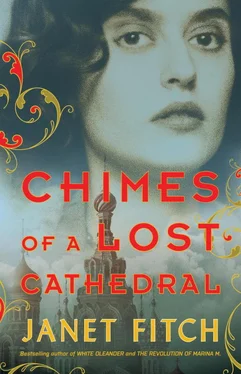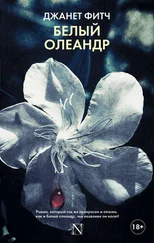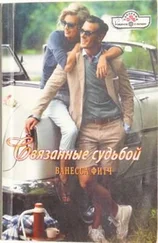But death wasn’t at all like that. It was my brother Seryozha, cut down halfway to manhood. It was the student shot dead before me by government troops at Znamenskaya Square. It was a boy-thief beaten to death by the mob, dying in Genya’s arms in his grubby apartment. And the astronomer’s son, in the cholera epidemic, shitting out his life in the grass. I thought of all my dead—Solomon Katzev, Andrei Krestovsky, Andrei Petrovin… Death was no velvet shadow. He was a worker in a cold brick factory, short on materials, churning out a tatty product—typhus, cholera, civil war. A robber, waiting in alleys and stairwells, a sign painter even now painting the blue faces of the Formers in the Tikhvin station and hovering around the reeking invalids of war. He was circling the rooftops at Maryino, where the Ionians were still inflowing in the back parlor with their shining doomed eyes.
Would this damned widow ever return? I clapped my hands together, stamped my feet as I watched more amateur speculators propelling their suitcases up the badly cleared street. How desperately we clung to life, each one of us. Where did we find the energy to carry on? I used to think the dead were hopeful for the living, like benevolent old ladies watching young people at a ball. Now I thought they just pitied us.
Two crocuses once bloomed
Between the rails
Of a tram.
The wrong time.
The wrong place.
Once I imagined
A great death.
Plumes and garlands.
But it’s all death, my brother.
We vanish just the same.
At last, a tall woman dressed in black turned up the unshoveled walk, a basket in her arms, already watching me with suspicion.
“Raisa Filipovna?” I called out. She raised skeptical eyebrows. “You don’t know me, but Styopa from the switching house sent me over.” Who should I be? Makarova? Shurova? “Kuriakina. Marina Dmitrievna.”
Korsakova hooked the basket over her arm, fished a key from her pocket, and unlocked the front door. “And how do you know Stepan Radulovich?”
“I don’t.” I vowed I would tell the truth when I could. “I went to the station this morning, looking for work. He told me to come up here.” She opened the door. I wasn’t sure if I was supposed to follow her, or if she would slam it in my face. “They said you might need someone. That you lost your girl.”
She turned back to me then, a firm-faced, dark-haired woman about forty. “Well, don’t just stand there.”
Inside, her house was warm, simple, and clean. Hooks by the door, wood walls, a little cabinet, a braided rug on the floor of the sitting room so old you couldn’t see what color it had been. Clean, wide-planked pine floors, solid, worn furniture smelling of men—a bit sweet, a bit acrid, the strong scent of tobacco. A workingman’s boarding house. Badly printed woodcuts, peasant lubok style, a couple of silhouettes. She hung up her coat and hat, removed her boots, and slid her feet into felt slippers. I was careful to keep my coat folded in, so the gun would not reveal itself as I hung my coat and my fox hat and took off my boots. She gestured to a pair of worn felt slippers and I put them on.
A long, rough table dominated the dining hall, a table that had never seen a cloth in any era. There we sat on long benches and I told her my tale, as much as made sense. She gazed at me with keen, dark eyes while I spoke, as if judging the weight of a goose under its feathers. “When is the child due?” she asked bluntly.
Seeing she’d lost a girl to a sexual escapade, I was careful to explain about my husband, the poet Gennady Kuriakin, who had moved to Moscow last autumn.
She grimaced, as if she’d just bitten into something sour. “He left you in this condition?”
For some reason, I wanted to defend Genya, even in the course of this elaborate fabrication. “It wasn’t his fault. Really, he didn’t know. I didn’t tell him. I didn’t want to make him stay if he didn’t want to. He’s a very ethical person.”
She cocked one of her mobile eyebrows and shook her head wearily, as you would if someone told you they’d just bought a handful of magic beans. “Styopa said you might have a job.” I brought the subject around again. “Said your girl left. I’m a hard worker, and… the condition, well, it’ll be months before it’s a problem. I don’t need much. Just give me a chance.”
“The girl was my eldest daughter,” she said wearily. “Yulia. Well, you can’t keep them young. Eventually the wheat will spring from the earth.” Her gaze fell upon my weathered hands. “Why don’t you wear a ring?”
My ragged hands, the broken nails. I hadn’t had to cut them since I left Furshtatskaya Street, they just tore off. “We married at the district soviet,” I said. “When the Germans were attacking Petrograd. He was leaving in the morning. There was no time for rings.” Our Red wedding. I could only remember Oksana’s geraniums, the petals shedding like little drops of blood.
“Romantics…” The widow Korsakova smiled, and pushed a loose strand of hair back into the black topknot. “I’m glad that’s not dead.” She surprised me. I’d have thought the landlady of a place like this would be a hard-nosed kopek pincher, counting the linens. “Well, all right. I’ll give you a try. But remember, I run a quiet, respectable house. I hear the least breath of scandal, that you’re drinking, running around, you’re out in the street. Baby or no baby. Ponimaesh? ”
I was in! It was all I could do not to leap and twirl down the hall as she led me to my room. Only her extreme sobriety discouraged it. We climbed the stairs, walked down a long creaking hall wallpapered in a pattern of tiny flowers the color of old teeth, then up a second, crooked back staircase to a small third floor. She showed me a room with two narrow beds. Cheerful half-curtains of printed calico softened the windows. “That was Yulia’s,” she said, pointing to the bed under the window. “And this is my younger one’s, Lizaveta. She’s at school now.”
After the disorder of the last years, the lunacy of Ionia, I wanted to kiss the hem of her skirt. Such peace. The good order of family life. Thank God for this plain, sensible Russian woman who was making a home for her daughters. Perhaps I would be like this in a few years, streaks of gray in my hair, calm and competent, able to keep other people alive.
She stood in the doorway in her black dress. There was something Akhmatovian about her, her height, her hair, her somber countenance. My savior, my saint. “I’m sorry about your brother,” she said. “We have to cling to each other very tightly these days.”
And so I took up residence at Raisa Filipovna Korsakova’s. After my duties in former lives—as the servant Marusya at Pulkovo Observatory, as Marina Ionian these last months—I well knew how to make myself useful, and oh, three lovely meals a day! The widow and I worked side by side as she instructed me on the niceties of the domestic arts. It didn’t bother me that she was on the taciturn side unless actively illustrating some task. I had learned to appreciate silence.
Eight railwaymen lived in the house, including one-armed Styopa, who watched me tenderly as I carried pots and passed food, even helped me clear the table. He whispered to me, “Come to me when the lights go out. Fourth door on the right.” I smiled, neither refusing nor accepting. But it made me happy. He was a kind soul, robust and not unattractive, his hair and moustache had some gray. His gray eyes accepted his fate with the simple courage I’d seen in the military hospitals in Petrograd. God knew it had been a long time since I’d had a man. But I would not push my good luck at finding this position. He watched me as I sewed buttons onto trousers and darned socks on a wooden egg.
Читать дальше












